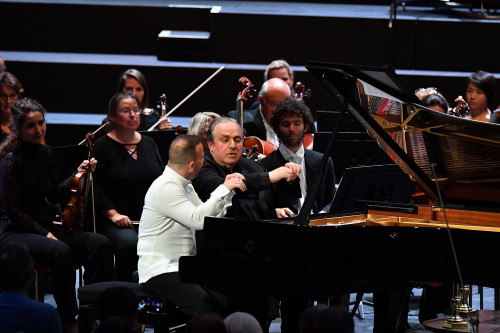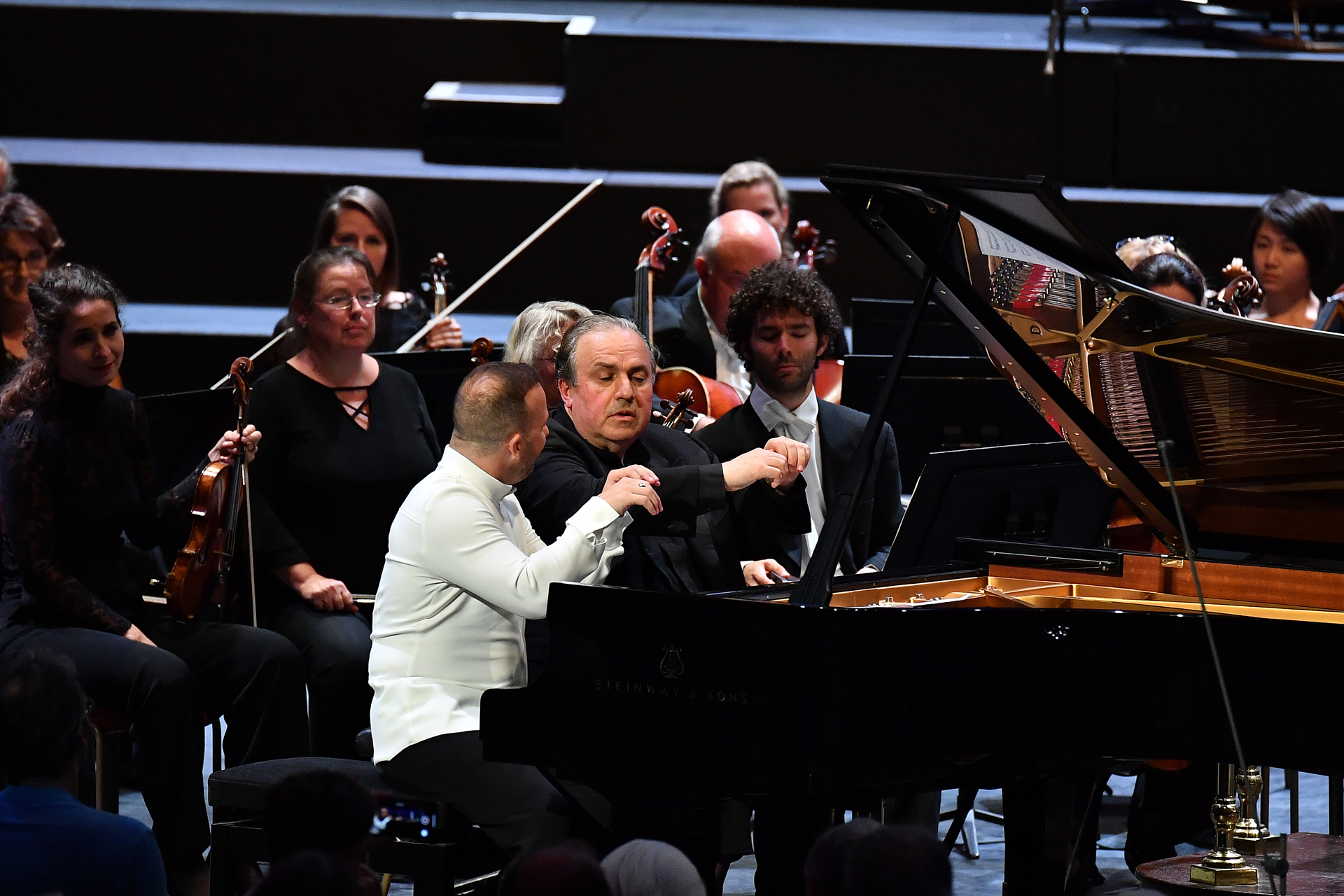
 United Kingdom Prom 61 – Liszt, Bruckner: Yefim Bronfman (piano); Rotterdam Philharmonic Orchestra / Yannick Nézet-Séguin (conductor). Royal Albert Hall, London, 28.8.2018. (CC)
United Kingdom Prom 61 – Liszt, Bruckner: Yefim Bronfman (piano); Rotterdam Philharmonic Orchestra / Yannick Nézet-Séguin (conductor). Royal Albert Hall, London, 28.8.2018. (CC)

Liszt – Piano Concerto No.2 in A, S 125
Bruckner – Symphony No.4 in E flat, ‘Romantic’
This concert is part of a farewell tour: Yannick Nézet-Séguin leaves his post at the head of the orchestra at the end of the current season; thereafter he will be the Rotterdam Philharmonic’s Honorary Conductor. He will be succeeded by the young (27-year-old) conductor Lahav Shani – the youngest Principal Conductor of the orchestra in its 100-year history. Nézet-Séguin’s next post is at the Metropolitan Opera, something he acknowledged in the second-half encore, a tender account of the Prelude to Act III of Verdi’s La traviata. From Rotterdam – ‘Manhattan on the Maas’ – to the Upper West Side of Manhattan proper.
The bond between Nézet-Séguin and the Rotterdam players is clearly deep. Over the last decade – he took over the post from Gergiev in 2008 – the connection between conductor and orchestra has clearly developed, something that was obvious in the Liszt as well as the Bruckner. The string sound in the more delicate moments of the Liszt was beautiful; discipline both between orchestral departments and between orchestra and piano was remarkable. The solo cello of Joanna Pachucka sang as eloquently as the solo clarinet of Julien Hervé. Balancing this was the piano protagonist, Yefim Bronfman. Although I found Bronfman’s Prokofiev Second at the Barbican in 2008 disappointing, his Brahms with the Berliner Philharmoniker at the Proms in 2012 was far more impressive. His Liszt fell into the latter camp, confident, technically more than assured, and perfectly in style. The combination of Nézet-Séguin and Bronfman revealed a piece that could hardly be accused of bombast (as it so often is), even at its most outrageous. Bronfman’s clarity throughout was remarkable; a joy, in fact. He is undemonstrative at the keyboard: the glissandi were delivered without any Lang Lang-like theatrics, a sonic effect rather than a look-at-me moment.
The first half encore held a remarkable turn of events: Nézet-Séguin joined Bronfman at the piano for a duet: a Venetianisched Gondellied (Venetian Gondola Song) by Mendelssohn, Op.62/5, deliciously delivered.
So to the Bruckner Fourth, heard in the Haas edition. This was a remarkable performance on many levels, not least for the fact that the first horn, David Fernández Alonso, not only played without a bumper – so there really were four horns – but gave such an astonishingly accurate account of this most demanding of parts. Only one attack could be construed as not spot-on (at the very end of the slow movement) but even that was hardly a ‘mistake’ as such. And he has clearly never been introduced to the idea of lip tiredness.
The symphony seemed to appear out of nowhere, the characteristic Bruckner string tremolando all but inaudible. Nézet-Séguin’s reading was characterised by its gentleness, but also by its intelligence. On occasion this gentleness could misfire slightly – the ending of the first movement was on the tame side and the Andante, quasi allegretto lost its way slightly in the middle – but this was the most refreshing Bruckner to come my way in many a moon.
An interesting quirk was the first horn’s tonguing of the upwardly-rising interval in those horn calls that open the symphony: the score gives just one phrase marking over the whole gesture, which is therefore not to say the tonguing is incorrect, although one naturally expects a slur. Whatever the reason, Alonso’s tone was positively golden, his attack perfectly judged. Wind responses were beautiful; the brass was impressive throughout, if not always totally together on all occasions. Only the upper strings on occasion could lose the sheen and sound thin.
The ultra-rapid Scherzo found the brass at their most agile; the Trio was a place of repose, a time to catch the breath. The finale was beautifully brought together by Nézet-Séguin (a special mention, too, for the positively smoky violas), the close beautifully paced.
A most satisfying concert.
Colin Clarke
